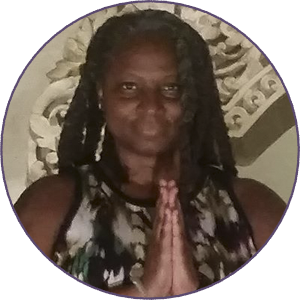“The best thing that I have ever done!”
So says Dr. Pamela Ross, MD, FACEP, FAAP, about starting her locum tenens practice. The idea of a locums practice sprang from seeds planted in her Ohio residency 23 years earlier.
Starting With Moonlighting
She explains: “I trained in the early ‘90’s when, as emergency medicine residents, if we held a medical license, we could moonlight as residents. We didn’t call it locums, we just called it moonlighting above and beyond our residency. When I graduated and went on to do a fellowship in Peds at the University of Virginia, one of the hospitals at which I moonlighted still needed help, so every now and again I would fly back and help out. Then my academic career took off and I was not able to do that anymore.”
She loved her academic career at the University of Virginia. But as all things move on, so did her interests. She says, “I found that after 17 years I needed a little more control of my life and schedule. Actually, not a little more, I needed a lot more control of my life and my schedule and made the decision to leave the University of Virginia, launch my own business, and give locums a try.”
Locums Opportunities Abound
An active member of the American College of Emergency Physicians, she meets people at ACEP conferences and finds her name on lists of all kinds. The result is that she receives lots of correspondences about locums opportunities.
“One day the timing was right,” she explains, “and an email came to me. It had opportunities in Ohio. I hadn’t worked in Ohio in a long time but I still had my Ohio medical license. I looked into it, I tried it, and it worked out very well.”
Today she’s hooked on locum tenens. “I think locums is in my blood, being in different places and interfacing with different people.”
Meeting Healers Around The World
The flexibility and control that comes with a focus on locums enables her to pursue a passion of hers – meeting healers from around the world. She can load her shifts, for instance, to work a lot in September and October “so that I don’t have to work in December. I can go off to Thailand for the month, be it [to] meet with healers or learn about healing in other cultures. I’ve been to Indonesia, I’ve been to Peru, I’ve been to the Philippines, and in each I’ve met with shamans and healers to learn what they do, what they believe about healing and health. That’s been very rewarding for me, and that’s something I would never have been able to do as an academic physician.” She adds that she may one day author a book on her findings, findings that have proved “humbling and I think help me be a better physician.”

Staying Sharp
Another benefit of her locums experiences? Keeping her mind sharp.
She says, “It takes a certain personality to be able to walk into a place as a stranger and leave as a friend. That can create a whole lot of stress [for some]. But we’ve got evolving research that shows if you’re right handed and you do more things with your left hand, you force your brain to create new circuits. Being a locum physician, working in different hospitals, I’m constantly forcing my brain circuits to stay wired and rewired and active, and it actually helps in the long run. You just don’t get the opportunity to fall into a mind-dulling pattern, simple things that the brain can lock into.”
Was she ever concerned about giving up the security of an academic career for a locums career?
She insists not. “With a good group of expert consultants for insurance and taxes and for financial planning, I’ve pulled together a team that has done for me above and beyond what I received as an employee.”
She encourages anyone considering locum tenens to go for it. “Life as a locum physician can be really outstanding. It’s the opportunity to create the most perfect life and work balance ever.”



